This post may contain affiliate links. Please read my privacy policy.
This easy butter cake recipe is rich, soft, moist, and fluffy—everything I love in a dessert. It’s simple to make, but so delicious, I find myself making it again and again. Whether it’s for a special occasion or just a cozy afternoon with a cup of tea, this cake never disappoints.
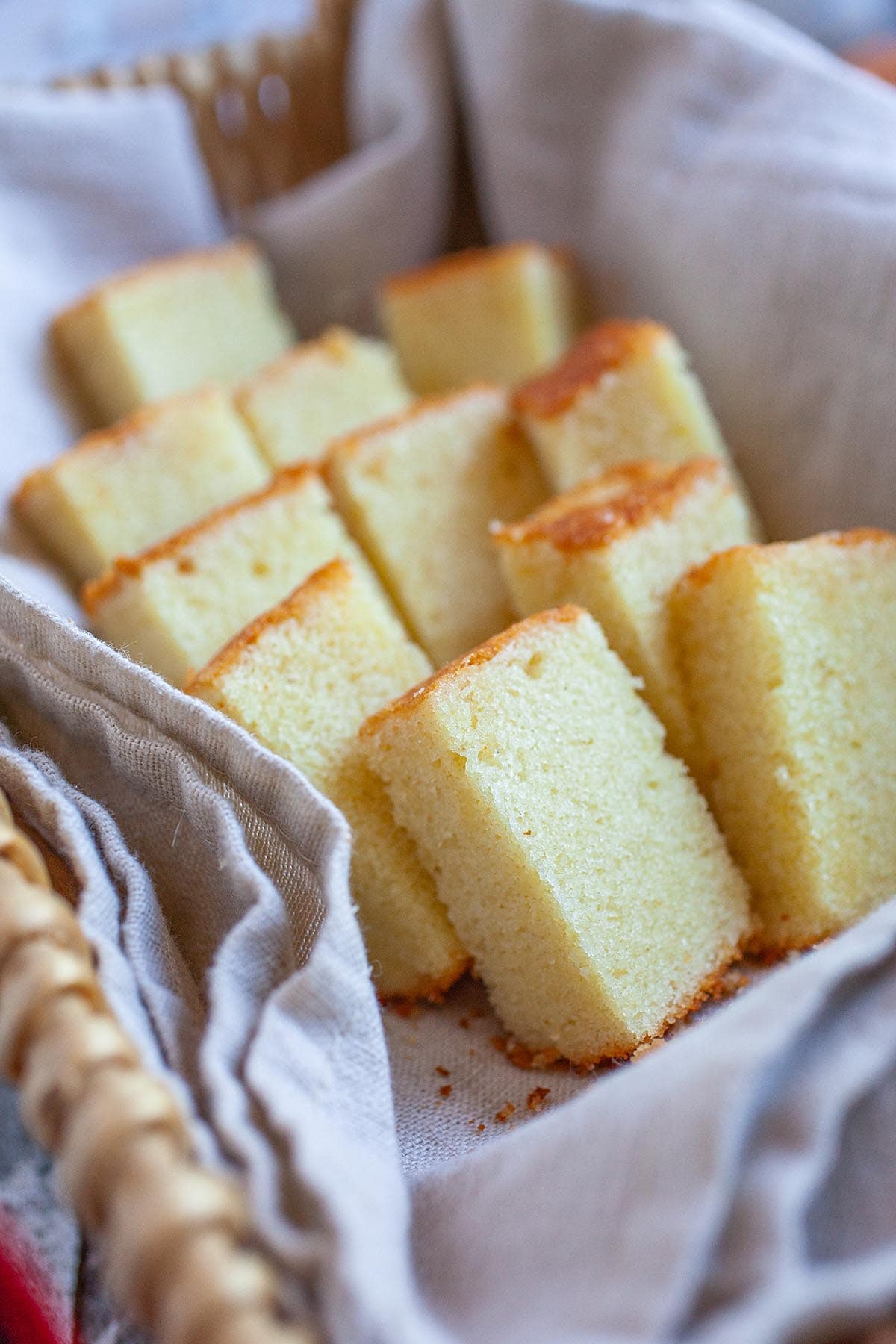
Table of Contents
Traditional Butter Cake Recipe
I’m sure most of us have had some version of butter cake—whether it’s that homemade treat from grandma’s kitchen, a slice from the local bakery, or even a boxed mix from the store.
But making it from scratch? That’s a whole different experience. Honestly, this is the best butter cake recipe you’ll ever come across! It’s been tried, tested, and loved by thousands of readers worldwide, with over 900 votes and an average rating of 4.5. Don’t forget to check out my step-by-step video and tips below for a foolproof guide to making this cake at home!
“AMAZING and by far the best recipe found so far… Tested it twice and being a huge fan of ‘great butter cake,’ this thing was phenomenal… Follow the instructions exactly, this baker knows what they are doing!”
– Five Star Monkey
What Is The Difference Between Butter Cake And Pound Cake
I think of butter cake as a close cousin to pound cake. Both have that rich, buttery flavor and dense texture, making them perfect for enjoying with a cup of coffee or tea.
The ingredients are pretty similar, with both using baking powder as a leavening agent and sometimes milk. The main difference is in the ratio of those key ingredients.
Pound cake gets its name from the traditional recipe that calls for one pound each of butter, flour, and sugar. Butter cake, however, has more butter and sugar, giving it a richer flavor and fluffier texture than pound cake.
If you’re interested, you can check out more about these cakes over at Tasting Table.
Ingredients You’ll Need
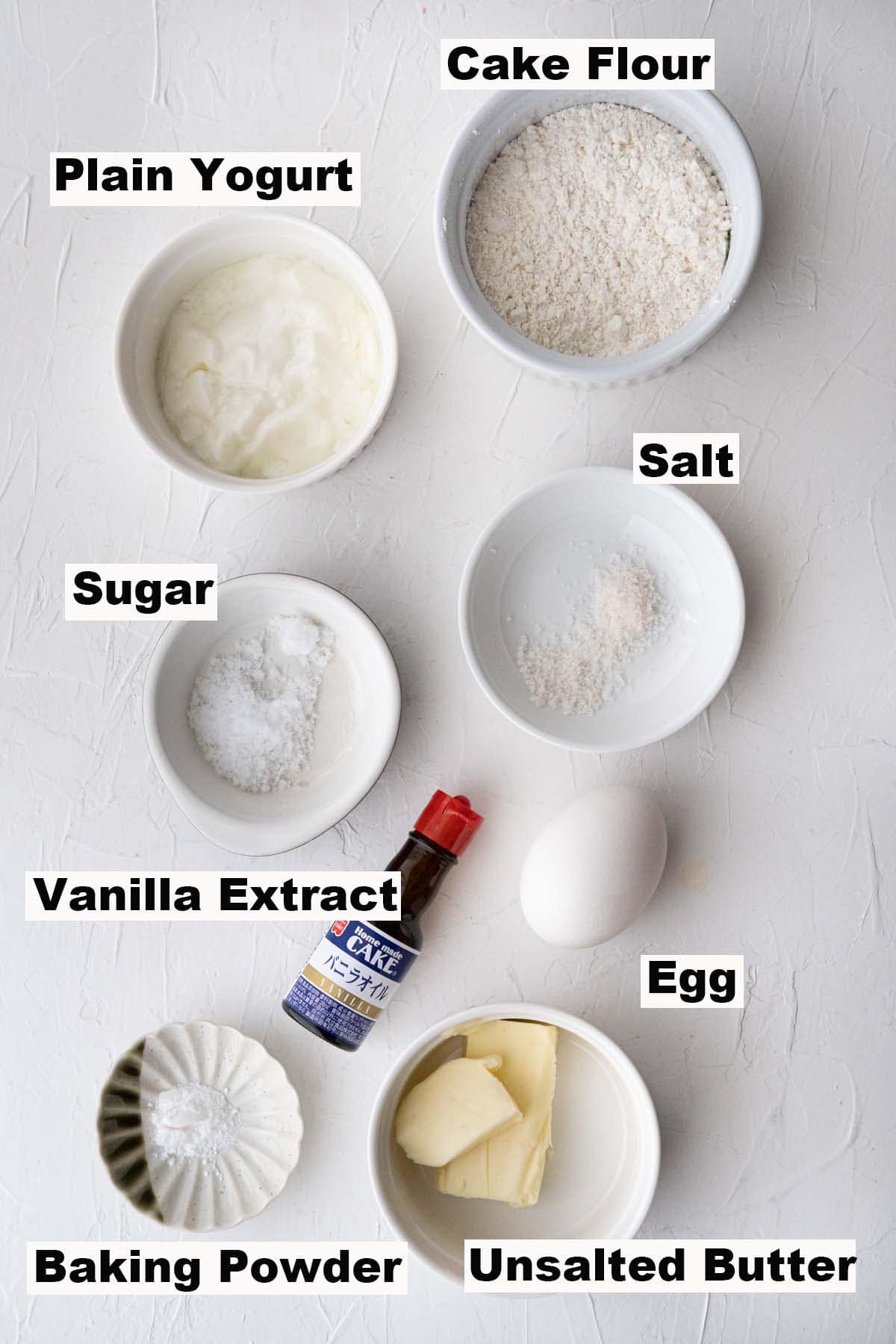
- butter – I like to use unsalted butter to control the amount of salt.
- flour – you can use all-purpose flour if that’s what you have on hand. But you can also use cake flour, which has a lower protein content, for a lighter and more tender texture.
- sugar – granulated sugar is my go-to as it creams well with the butter. But you can also add brown sugar for a deep, caramel-like flavor.
- eggs – bring eggs to room temperature to ensure even mixing with butter and sugar.
- yogurt or milk – adds a lot of moisture that helps to make the cake tender. I like to use plain yogurt, but you can also use milk, buttermilk, or sour cream.
- baking powder – helps the cake rise, giving it a light, fluffy texture.
- vanilla extract – a must for adding flavor so use a good quality one. You can either use pure extract or vanilla bean paste for a more intense flavor.
Want something rich and chocolatey? Make a batch of my Marble Cake recipe.
Please refer to the recipe card at the bottom of this post for full details on each ingredient.
Recipe Variations
- Fudgy and chocolatey: Top a rich, dense brownie bottom with a light, moist butter cake to make a Brownie Butter Cake that’s irresistible.
- Nutty: Add ground walnuts to the batter and sprinkle some whole ones on top for a delicious Walnut Butter Cake.
- Raisins: For a sweet twist, load up your cake with raisins in this Raisin Cake recipe.
- Blueberry: Bake a Blueberry Butter Cake (or Blueberry Cake) and enjoy a burst of color and flavor in every bite.
- Brandy-flavored with prunes: Try a Brandy Butter Cake with Prunes, adding a splash of brandy and dried prunes for a unique, flavorful twist.
How To Make Butter Cake
If you’re thinking of making a homemade cake, you can’t go wrong with this simple butter cake recipe. Perfect for novice bakers, everything from prep to baking is done in just an hour!
This traditional butter cake recipe gives you a soft, buttery cake that tastes wonderful even without frosting or glaze. So it’s perfect for those who prefer a cake with just the right amount of sweetness.
Here’s how you can make a super moist butter cake loaf at home:
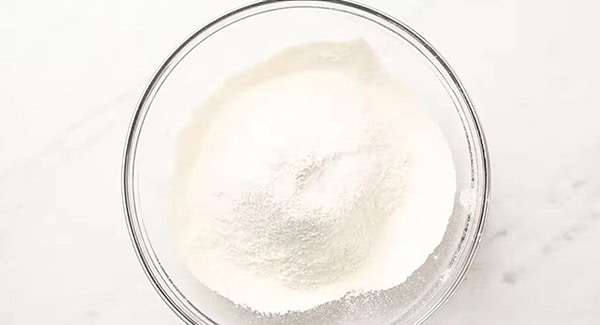
Preheat your oven to 375°F (190°C) and lightly grease your pan with some butter. In a separate bowl, mix the flour and baking powder together, then sieve them. Add in a pinch of salt and mix it all up. Set that aside for now.
Pro tip: You can use an 8×8-inch (20×20-cm) loaf pan or a 9×9-inch (23×23-cm) square or round pan, depending on what you have on hand.
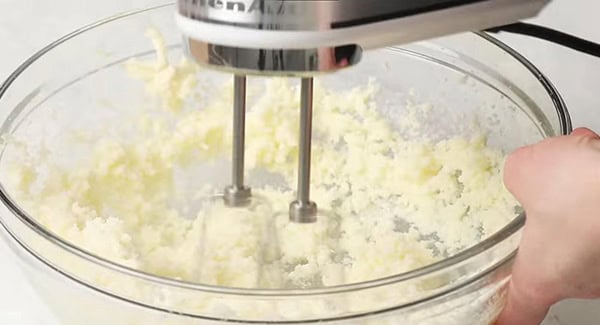
Grab an electric hand mixer or stand mixer and beat the butter and sugar together until well combined and light in color—about 3 minutes.
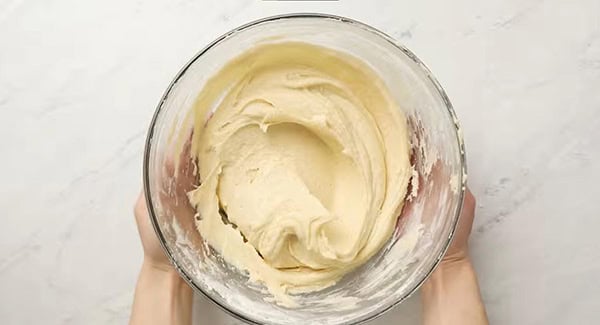
Add in the first egg and mix well. Beat until creamy—about 1 to 2 minutes after each egg. Scrape down the sides to make sure everything is evenly mixed. Add in the vanilla extract and mix again. Next, fold in the flour mixture and mix well. Then add in some plain yogurt or whole milk to the batter.
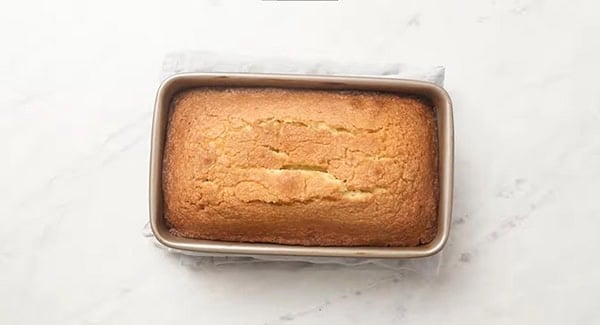
Pour the batter into your greased baking pan and give it a little shake to even it out. Bake until golden brown and cooked through—about 40 to 50 minutes. If the top of the cake is getting too brown, cover it with a sheet of aluminum foil once the top is set.
To check if it’s done, use a cake tester, toothpick, or skewer—if it comes out clean, the cake is ready!
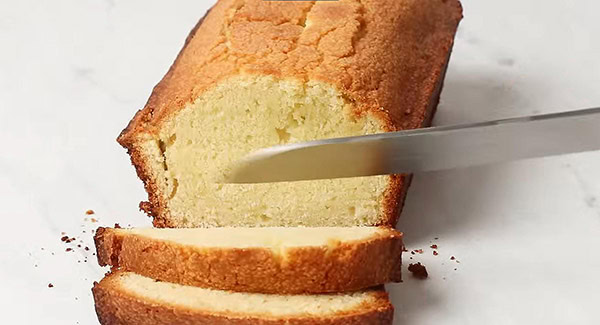
Let it cool on a wire rack for about 5 minutes, then cut into pieces and serve warm. Enjoy!
Butter cake is best when it’s served warm or at room temperature. If you have leftovers, wrap them up in aluminum foil or plastic wrap to keep them from drying out. You can also store them in an airtight container.
To enjoy the leftovers, just pop them in the microwave for a few seconds to warm up. If you have a toaster oven, that’s a great way to heat it up too. Easy and delicious!
Helpful Tips For Home Bakers
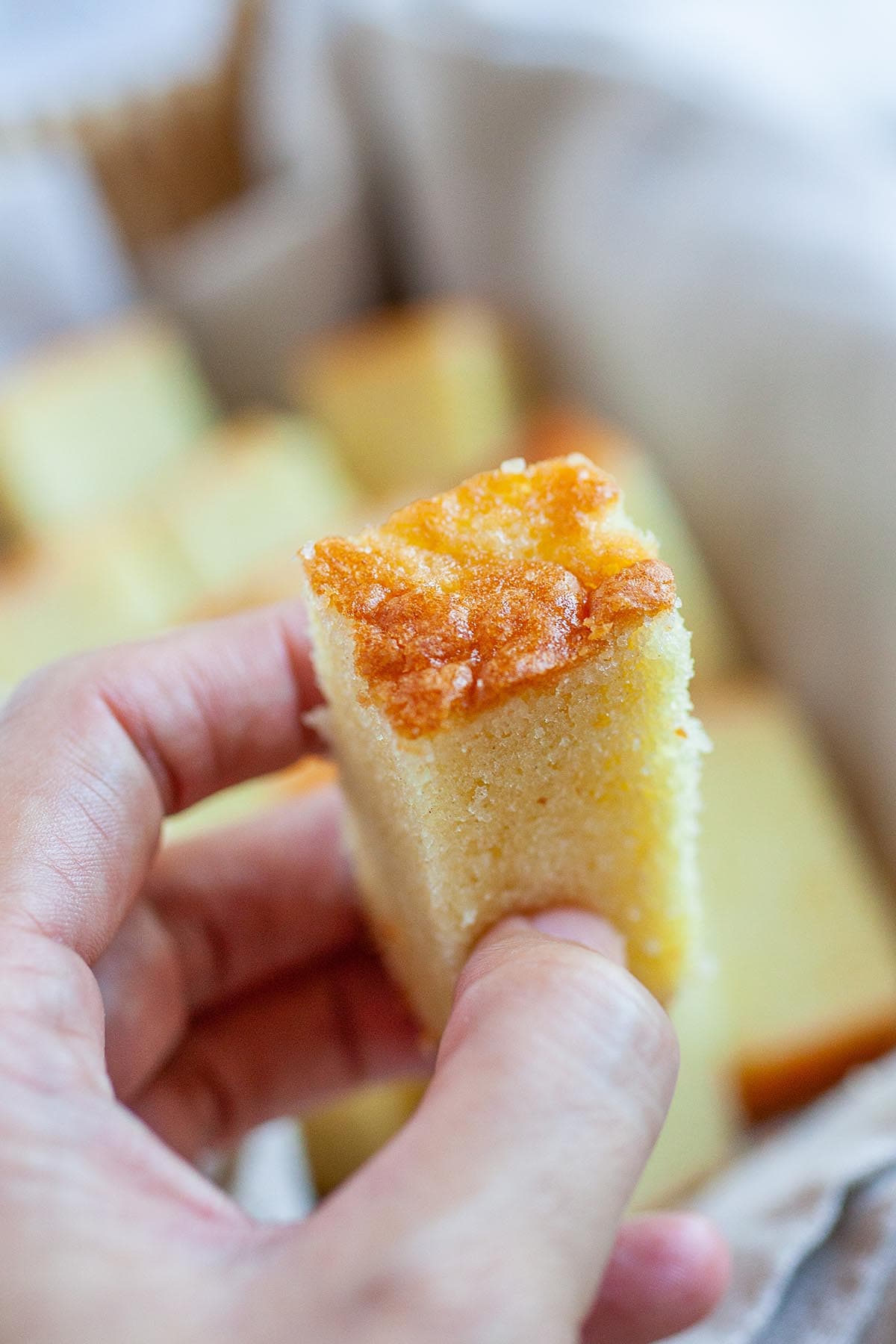
- I always bring my ingredients to room temperature so they blend smoothly and evenly. It makes such a difference in achieving that soft, light, and fluffy texture we all want—I’ve seen it firsthand!
- For the best flavor and texture, I always use high-quality butter. In the U.S., I swear by Challenge unsalted butter, and in Asia, I recommend the Anchor brand.
- To get a smoother batter, I prefer using a hand mixer or stand mixer to cream the butter and sugar.
- Sifting the dry ingredients (flour and baking powder) is a must to prevent any lumps and keep the batter smooth.
- I make sure not to overmix the batter after adding the flour—otherwise, the cake can end up dense.
- Instead of milk, I like to use yogurt because it makes the cake extra soft and moist.
- To avoid over-browning the top of the cake, I cover it with aluminum foil halfway through baking. Just make sure not to cover it from the start, or the cake won’t rise properly.
- If I do use foil, I make sure it doesn’t touch the batter so the smooth top stays intact once the cake’s fully baked.
Frequently Asked Questions
Yes, you can use sour cream as a substitute for yogurt in this recipe. It’s less tangy than yogurt, but it still has a lot of moisture and richness that makes the cake extra light and fluffy.
Yes, you can use Greek yogurt instead of plain yogurt. It will still give the cake a great texture, with a slight tangy flavor. Just make sure it’s plain Greek yogurt!
Yes, you can! Adding fresh berries like blueberries or raspberries to the batter will give your plain cake a burst of fruity flavor. You can also add dried fruits such as raisins and prunes.
I wouldn’t recommend swapping butter for margarine. The flavor and texture might be a bit off, and butter really gives the cake that rich, moist quality that margarine just can’t match. Stick with butter for the best results!
Both cake flour and all-purpose flour will work, but cake flour is the better choice for this butter cake if you want it extra soft and light. It has a lower protein content, giving the cake a more tender crumb. All-purpose flour will still do the job, but the texture might be a bit denser.
Yes, you can definitely halve this butter cake recipe! Just keep in mind that with less batter, the cake might bake a bit quicker. Start checking for doneness around 30–35 minutes, and be sure to use a cake tester (or toothpick) to check if it comes out clean.
Yes, you can totally double this recipe! Just use two separate loaf pans, and the baking time should be pretty much the same.
If you’re baking this recipe as cupcakes, keep the temperature at 375°F (190°C), but the baking time will be shorter. Start checking around 18–20 minutes. Just use a cake tester or toothpick, and if it comes out clean, your cupcakes are good to go!
To prevent the cake from cracking, make sure not to overmix the batter, especially after adding the flour. Overmixing can introduce too much air, which can cause cracks while baking. Also, keep an eye on your oven temperature—if it’s too hot, the cake might rise too quickly and crack. Baking at a steady 375°F (190°C) should help the cake rise evenly and stay smooth.
No, butter cake keeps well at room temperature for up to 3 days. Make sure to keep it in an airtight container to prevent it from drying out. DO NOT freeze the cake as it won’t retain its texture and flavor after thawing.
This recipe has only 287 calories per slice.
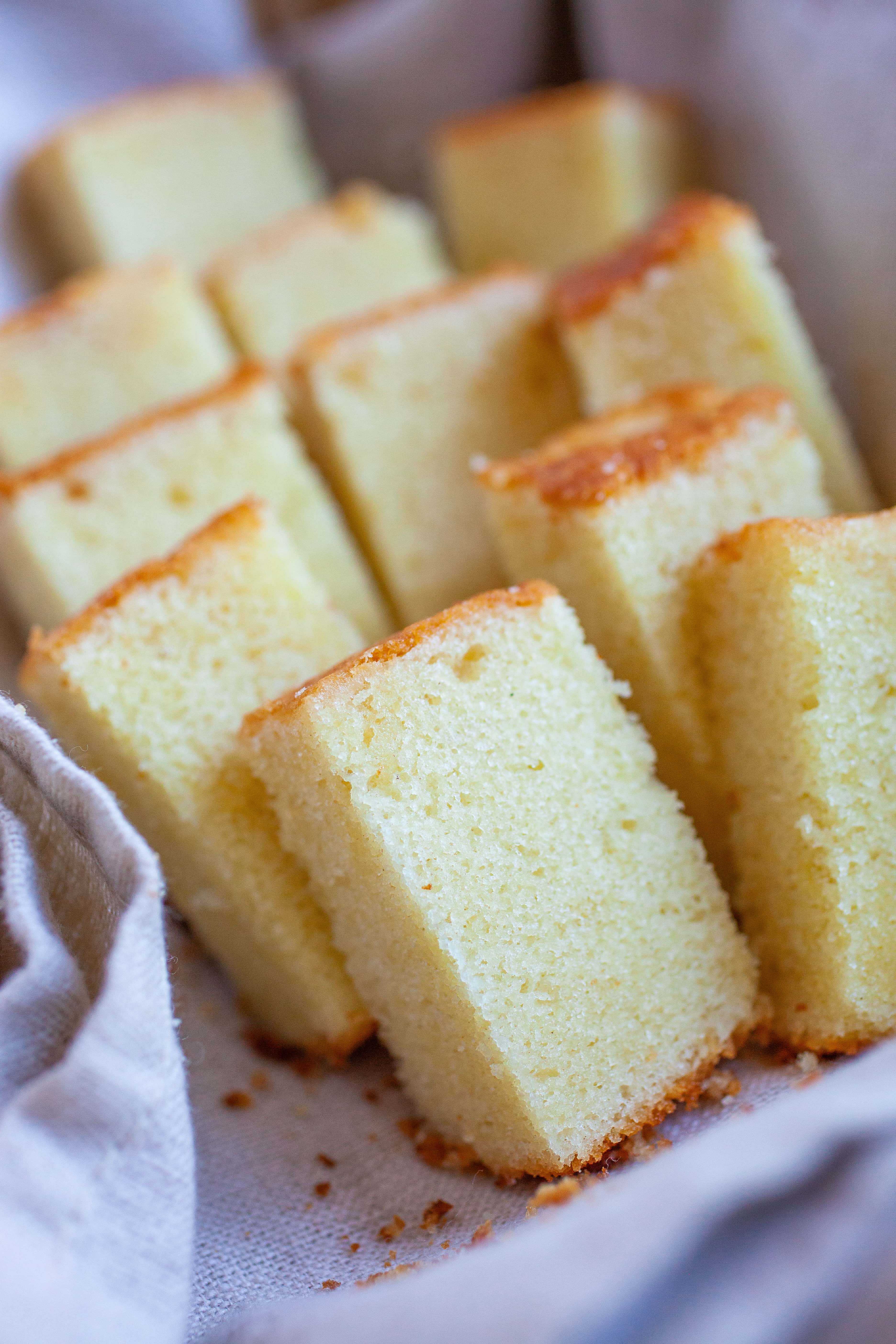
What To Serve With Plain Butter Cake
I love having a slice of this moist butter cake with a cup of coffee or tea as a mid-day treat. And sometimes, I even have a little bite after dinner to satisfy my sweet tooth.
If you’re having an afternoon tea party, I recommend the following recipes.
I hope you enjoy this post as much as I do. If you try my recipe, please leave a comment and consider giving it a 5-star rating. For more easy and delicious recipes, explore my Recipe Index, and stay updated by subscribing to my newsletter and following me on Facebook, Pinterest, and Instagram for new updates.
Other Recipes You Might Like
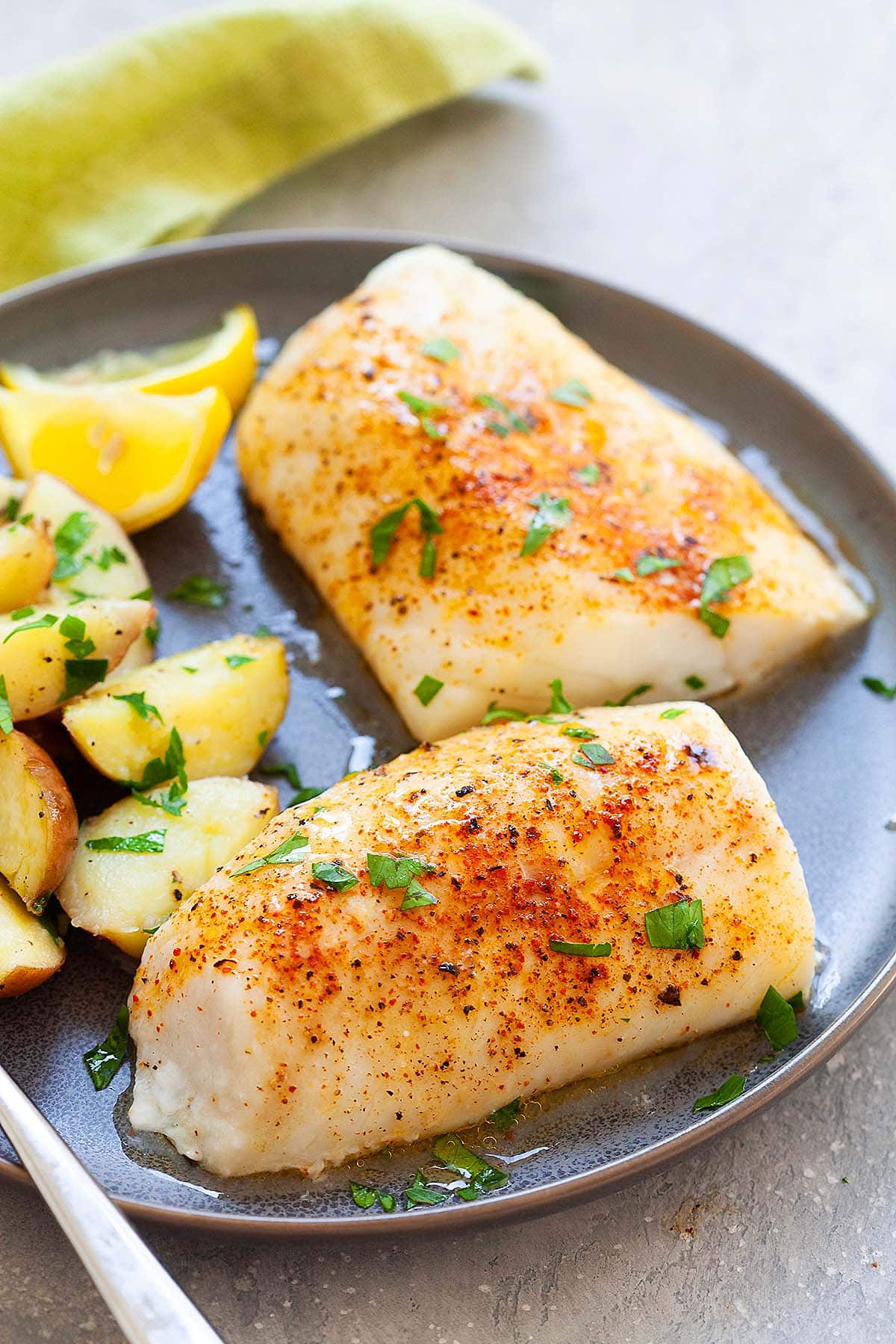
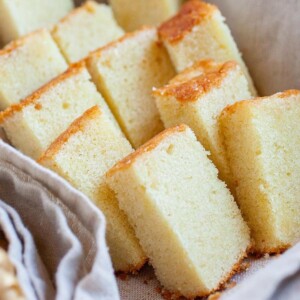
Butter Cake (The Best!)
Ingredients
- 7 oz. (200g) cake flour , or all purpose flour
- 1 teaspoon baking powder
- 1/2 teaspoon salt
- 2 sticks (225g) unsalted butter, room temperature
- 7 oz. (200g) sugar
- 4 large eggs
- 1 teaspoon vanilla extract
- 4 tablespoons plain yogurt , preferred or full milk
Instructions
- Preheat the oven to 375°F (190°C). Lightly grease the pan with some butter. Mix the flour and the baking powder together and sieve. Add in the salt and mix well. Set aside.Pro tip: You can either use an 8×8-inch (20×20-cm) loaf pan or a 9×9-inch (23×23-cm) square or round pan.
- Use an electronic hand mixer or stand mixer to beat the butter and sugar until well combined or pale yellow in color, about 3 minutes.
- Add in the first egg. Beat well after each addition of egg until creamy, about 1 to 2 minutes after adding each egg. Scrape down the sides for even mixing. Add in the vanilla extract and mix well. Fold in the flour and mix well. Add in the plain yogurt or whole milk.
- Pour the batter into the greased baking pan. Shake it lightly to distribute the cake batter evenly. Bake until golden brown and cooked, about 40 – 50 minutes. To prevent the top of the cake from over browning, cover the top of the baking pan with a sheet of aluminum foil once the cake top is set. Use a cake tester to test doneness.Pro tip: If you don’t have a cake tester, you can use a toothpick or a skewer to check the doneness of your cake. If it comes out clean, your cake is ready!
- Remove it from the oven and let it cool on the wire rack for 5 minutes. Cut into pieces and serve warm.
Video
Notes
- I always bring my ingredients to room temperature so they blend smoothly and evenly. It makes such a difference in achieving that soft, light, and fluffy texture we all want—I’ve seen it firsthand!
- For the best flavor and texture, I always use high-quality butter. In the U.S., I swear by Challenge unsalted butter, and in Asia, I recommend the Anchor brand.
- To get a smoother batter, I prefer using a hand mixer or stand mixer to cream the butter and sugar.
- Sifting the dry ingredients (flour and baking powder) is a must to prevent any lumps and keep the batter smooth.
- I make sure not to overmix the batter after adding the flour—otherwise, the cake can end up dense.
- Instead of milk, I like to use yogurt because it makes the cake extra soft and moist.
- To avoid over-browning the top of the cake, I cover it with aluminum foil halfway through baking. Just make sure not to cover it from the start, or the cake won’t rise properly.
- If I do use foil, I make sure it doesn’t touch the batter so the smooth top stays intact once the cake’s fully baked.
Nutrition
Nutrition information is automatically calculated, so should only be used as an approximation.
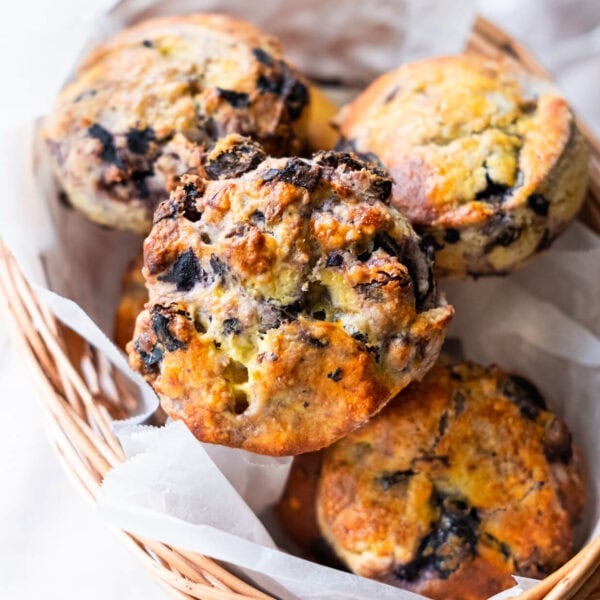
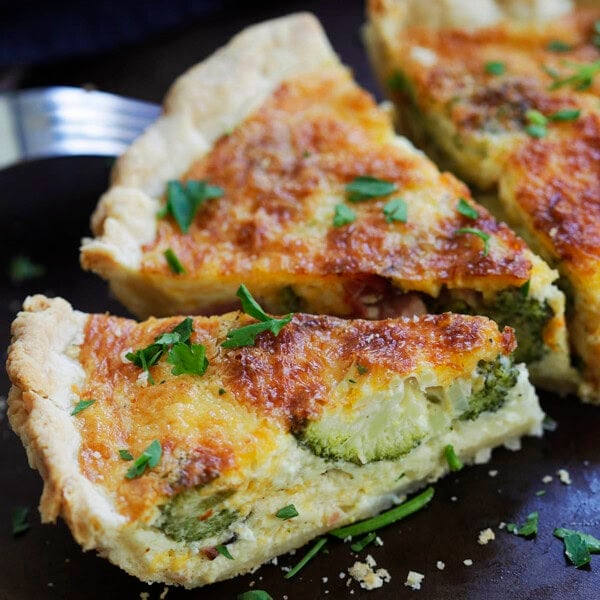
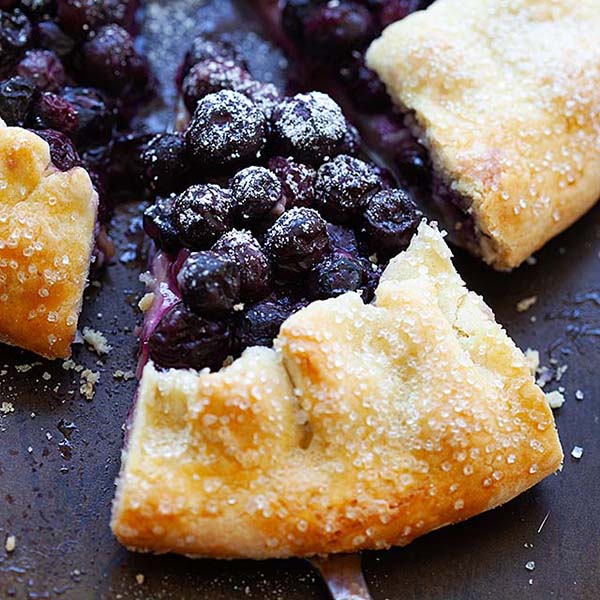
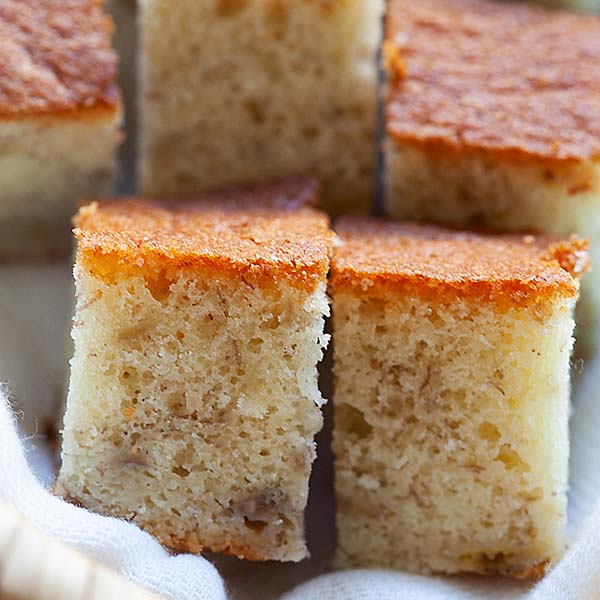






hi, can I clarify. Isn’t 8 by 8″ pan a square pan instead of loaf pan?
I am thinking of using 8.5×4.5″ loaf pan. How do I adjust the baking time? Thank you!
You can use 8×8″, 9×9″, or loaf pan, the time is about the same. Please use a cake tester to test doneness.
Hi, my butter cake has been turning out a tad dry. I have been using APF. Does not using cake flour make that difference? Or should I add more yoghurt? I have been using greek yoghurt. Thank you!
Hi Enni, this butter cake recipe yields moist and buttery cake, it shouldn’t be dry. Yes I use all purpose flour but you can try cake flour. Yogurt is 4 tablespoons. Greek plain yogurt is fine.
Hi! I’ve been baking this cake since I was single to now a mom of 3 kids! This has been my go to recipe for butter cake. I now would like to bake this as cupcakes for my son’s birthday.. how do I estimate the recipe and baking time in the oven? Thank you so much for giving us this beautiful recipe for I’ve fed so many tummies and they’ve all said what a delicious cake it is! ♥️
Hi Mamabear, for cupcakes, you might bake it for 25 – 30 minutes. I am not exactly sure. Check the doneness with a cake tester and let me know the time it takes.
Is it posssible not using a mixer to beat he butter and egg?
Thanks
You can beat with hands .
Hi Bee can I do half of your recipe and bake in the muffin pan? Do you think the oven temperature will be different , and will be faster time bake? I try your recipe before with loaf pan and come out perfect.
Yes, you can bake in muffin pan and cut down the baking time to half or use a cake tester for doneness.
I tried this recipe.its delicious.its my favourite recipe now
Thank you for your kind comment, Azie. I am really glad that you like my Butter Cake recipe. Happy baking!
why is my butter cake not cooked at the bottom
Hi Patsy. You may need to extend the baking time, or check your oven temperature with an internal thermometer. Most ovens either run cooler or hotter than the actual stated temperature.
Can recipe be halved?How will it turn out?
Hi, yes, you can halve the recipe and use a smaller baking pan. But you will need to reduce baking time to about 30-35 minutes. Do check on the cake for doneness at 30 minute mark by sticking a skewer in.
May i know if i were to use castor sugar how many grams should put in to the batter?
Hi Adibah. The recipe is calibrated for the use of castor sugar. You can use the same amount.
Tried a few last time. Today , have the kick to bake again. I used pecans on top. Hope is nice. Soft and fluffy. Good.
This is an excellent recipe, easy to make, readily available ingredients, and a delicious cake! This is a very good recipe for beginning bakers. Next time, I will lower the temperature a little, maybe to 350 degrees F. I did cover the cake with foil about have way through. It took 45 minutes for a clean cake tester.